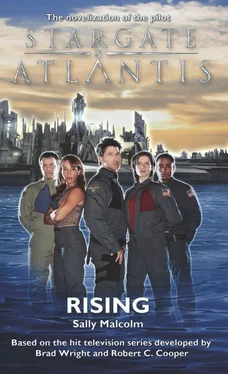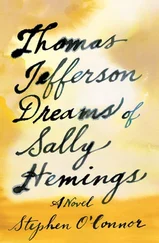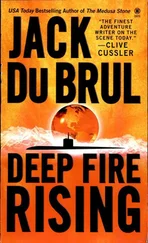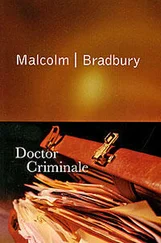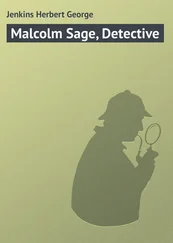Sally Malcolm
StarGate: Atlantis
Rising
The ice was encroaching. At the frozen edge of a world that had become their graveyard, a vast and hungry wilderness was invading the last vestiges of their civilization — Atlantis, their crowning glory.
It was more than a city: it was their past and their future. It would take them from this desolation to a place of hope, far beyond the stars that glittered in the icy night sky.
And yet the leaving tasted bitter. New hope required the sacrifice of past dreams, of generations who would never know the perfect beauty of a sunrise over the forests and oceans of Earth. Generations who would never know their true home.
Cyla Urbanus looked at her companion as above them the final ship returned. Now was the time, the closing moments when all had to end. She held his eye; he was torn, at the last, over what he needed to do. But he did not hesitate in his duty, and she turned to watch as a tremor shook the city.
Separation took mere moments. The star drive activated and Atlantis broke free from the icy fist that held it prisoner and rose from its base embedded deep in the rock.
In the fading light Cyla could just make out the small energy dome below, protecting the tiny outpost they were leaving behind. A beacon for the future, she thought. A beacon to guide those who come after. But soon its light was lost beneath the snow that blew in waves across the barren planes that had once been their home.
Will they follow, those that come after? Will they follow where we lead?
To that question, she would never know the answer.
And so the snow blew, for millennia upon millennia. Continents shifted, compacted, retracted. Life came and went, myriad species evolved and among them humanity was reborn. Their birth heralded the arrival of gods from distant worlds, bent on tyranny and war. But the gods were defied; humanity's second evolution was strong and vibrant. And curious, ever curious. Eventually, millions of years after it had been abandoned, and at a time of great need, the beacon was discovered beneath the ice laid down over eons. But the question still remained… will they follow?
It was cold. No, cold was the wrong word. It was simply too small a word to adequately describe the razor-edged air that permeated even this far into the base. As the cage-elevator trundled down the borehole, through a mile of ancient ice, the temperature didn't even get close to anything as balmy as freezing.
Dr. Elizabeth Weir shivered and glanced at her traveling companion. Lieutenant Ford's uniform looked thick and warm. She rubbed her freezing hands together and wondered if he felt the cold. Catching her scrutiny, Ford raised a curious eyebrow but didn't say anything. She just smiled as, at that moment, the elevator came to a bumpy landing in the Outpost of the Ancients.
Amazing, Weir thought as she stepped out into the cave of ice, how easily that tripped off the tongue. Outpost of the Ancients. A couple of months back she'd never even seen Star Wars; now she was living it.
As usual, the base — her base — was in a state of controlled chaos. The excitement felt by everyone here was palpable, an electricity that bounced between a dozen brilliant minds, feeding off itself until the whole place buzzed with the thrill of discovery. Weir loved it down here; in this place she felt twice as alive as she'd ever been in her life. It was addictive too, if she left for just a-
"You see! Nothing!" The exclamation came in an exasperated Scottish brogue.
Of course, not everything was going smoothly.
Dr. Carson Beckett, their MD, who reminded Weir of nothing so much as a teddy bear, jumped out of the mysterious Ancient chair from which General Jack O'Neill had only recently defeated Anubis's attack on Earth. The doctor stormed toward her like a child refusing to do his homework, oblivious to everything around him.
On his heels was Dr. McKay, all indignant frustration. "Carson, get back here-"
Beckett turned on him. "I could sit in the chair all bloody day, and nothing would happen! It's a waste of time." He noticed Weir for the first time and moderated his tone. "Excuse me, Dr. Weir."
And then he was gone, leaving McKay stranded in his wake. He puffed out a sigh. "He's not even trying."
Weir glanced curiously between the two men. "But he's the one who discovered the gene that Ancient technology identifies and responds to."
"Yeah, well, he said he wished he didn't have it!"
"Really?"
"I know. Can you believe that?"
She smiled. The thing you had to remember about Dr. Rodney McKay was that, as far as he was concerned, the entire world — possibly the entire galaxy — conspired to frustrate him. Once you understood that, McKay was much easier to handle. Putty in her hands. "We could always test you a third time, Rod„ney.
"That's very funny."
She thought so too, but swallowed her smile. "The point is," she said, as they walked back toward the Ancient chair, "we've only found a handful of people who are genetically compatible with the technology of the Ancients, despite your efforts to interface it with our own…" She cast him a serious look. "We need every one of them to take their turn, including Dr. Beckett."
"What am I supposed to do? He's afraid of the thing."
Weir stepped onto the platform that accommodated the chair. It was huge, its curved alien design exuding power and threat. When she touched it, it felt slick and warm beneath her fingertips, despite the frigid air. "This chair controls the most powerful weapons known to man," she reminded him. "I'm afraid of the thing…" Which was hardly the point. "Every time someone sits in it we learn something more about the Ancients who built this outpost. That chair — and the weapons it controls — are essential to the defense of this planet. Dr. Beckett should be proud that he's genetically advanced-"
"It's not advancement," McKay corrected. "It's a random characteristic."
Stepping down from the platform, Weir repressed a chuckle. "It really bothers you, this gene thing."
"Clearly I am overcome with envy."
"Yet you hide it so well."
His undoubtedly snappy reply was forestalled by an excited call from the other side of the room. "You're just the people I need to see!" It was Dr. Daniel Jackson, deep in thought and brow furrowed. Before either of them had time to answer he had disappeared back the way he'd come, mumbling to himself.
Weir exchanged a glance with McKay; they'd both had some experience of Dr. Jackson's eccentricities. She was about to ask Rodney if he had a clue what Jackson had been talking about when the man himself returned.
Daniel looked at them for a moment, as if strug gling to remember why he was staring at them, then said, "Come with me."
Who could refuse an offer like that?
There were days, Daniel Jackson thought as he barreled through the busy corridors of the Ancient Outpost, when life really did seem too good to be true. The thrill of the intellectual chase, the overwhelming high of developing a theory and then proving it right, had driven him his whole academic life. Not to mention the fact that most scientists of any stripe made, if they were lucky, one momentous discovery in their entire career. His running total was now three, because this theory, this discovery, was on a par with the day he'd first deciphered the gate address for Abydos and proven all his detractors wrong. Or the day he'd stood alone beneath the pyramid of Ra and realized that the Stargate was part of a vast network of alien worlds, and that the galaxy had suddenly gotten a whole lot smaller, and a whole lot more crowded, than anyone on Earth could comprehend.
Today was just like that. Today was historic, literally.
Читать дальше
